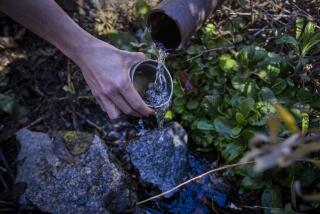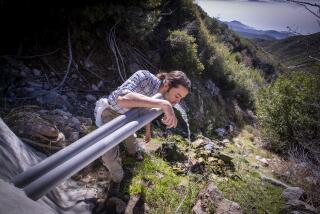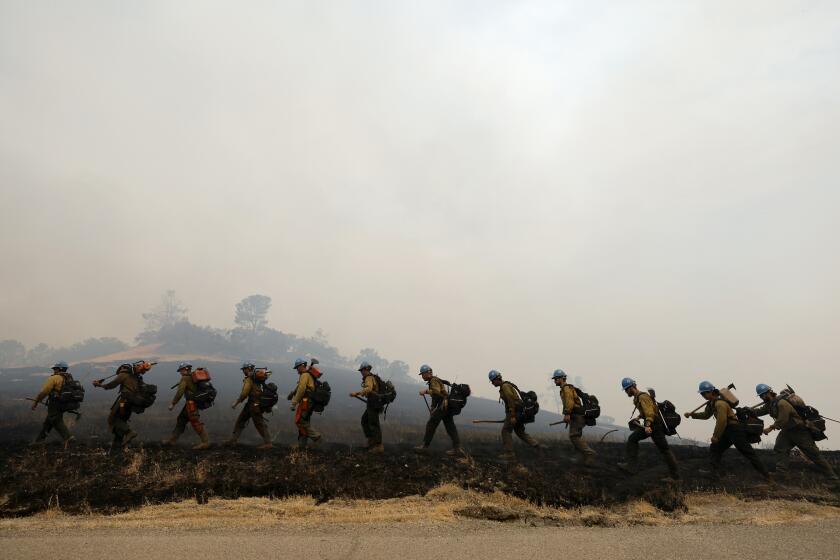Camp Pendleton under consent decree after rats, frogs found in water supply
Camp Pendleton officials swear that the water consumed by 55,000 Marines and their families is safe, despite a pair of scathing state and federal investigations indicating chronic problems in the treatment systems at the sprawling military base.
Water safety inspectors visiting Camp Pendleton over several days in late June uncovered rats rotting on a reservoir gate, a desiccated frog clinging to a reservoir ladder and a rodent carcass floating in treated water.
They also interviewed base workers listed on paper as water treatment supervisors who didn’t know they were supervisors.
On Thursday, the Marines and the U.S. Environmental Protection Agency entered into a consent decree designed to force the base to follow federal clean water regulations.
“Public water systems must meet all state and federal requirements to provide safe drinking water to their customers,” said Alexis Strauss, EPA’s Acting Regional Administrator for the Pacific Southwest. “Our priority is to ensure the base achieves compliance promptly, to serve those who live and work at Camp Pendleton.”
EPA officials told the San Diego Union-Tribune that after the Marines failed the June inspections, workers removed all animal remains from the system, cleaned the reservoirs, began routine testing of the water for Coliform bacteria and chlorine levels and pledged to keep surveying water quality to ensure it was safe to drink.
“Simply put, the water is and has been safe to drink. Camp Pendleton is committed to providing safe and compliant drinking water. This is a duty and responsibility that we take very seriously,” said base spokesman Carl Redding in an emailed statement.
On Thursday, Marine leaders began circulating a notice conceding that state and federal investigators identified “vulnerabilities in the condition of our physical plant with specific emphasis on our 34 treated drinking water reservoirs across the base.”
The memo insisted that there was no emergency or “immediate health risk” and said residents didn’t need to boil water or take other corrective actions.
The state and federal investigators, however, found “significant deficiencies” at both systems that comprise the base’s total treatment program, including a failure to inspect and maintain equipment, which led to foundational cracks and inadequate seals in the reservoirs. Problems with animal remains in the reservoirs dated to 2015, according to the reports.
Some reservoirs on base had not been cleaned since 2009, nearly three times as long as they should have gone without a proper scrubbing. The reservoir with rodents rotting on a mesh grate had not been cleaned within the last three years, a violation of the base’s own standard operating procedures.
One reservoir — an elevated tank — was in such “poor condition” that workers feared an inspection might not even be feasible.
John Simpson, the director of Camp Pendleton’s Water Resources Division, pointed investigators to larger problems in the base’s treatment system that likely won’t be quickly solved.
Prine writes for the San Diego Union-Tribune.
More to Read
Start your day right
Sign up for Essential California for news, features and recommendations from the L.A. Times and beyond in your inbox six days a week.
You may occasionally receive promotional content from the Los Angeles Times.






